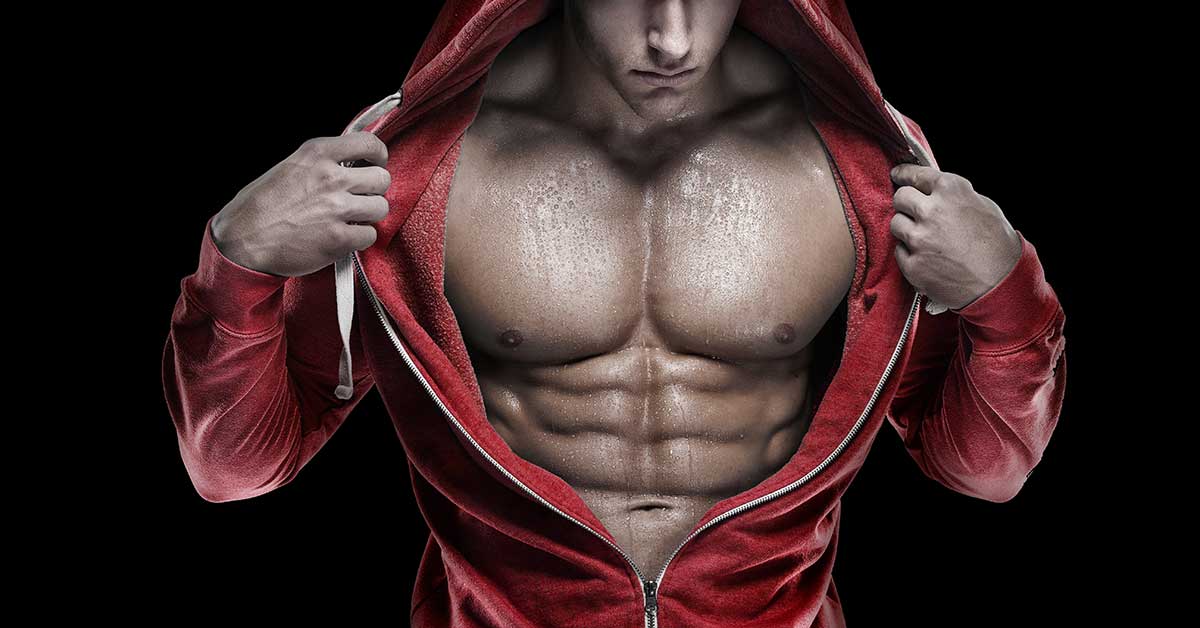1. Dumbbell pullover
The dumbbell pullover is a classic exercise from the Golden age of bodybuilding that can help build serious muscle mass and when done correctly, will work the lower pecs, triceps, abs and lats.
What muscles does the dumbbell pullover work?
Primary muscles:
The dumbbell pullover primarily targets the serratus anterior muscle located on the upper rib cage.
Secondary muscles:
The lats are worked while performing the dumbbell pullover while they are pulling the arms back to the starting point and also during the lowering phase of the lift. The triceps are worked throughout the duration of the exercise. The pectorals are worked during the lifting phase of the exercise.
Benefits of the dumbbell pullover
1. The dumbbell pullover helps to build a bigger chest and back
This is a good exercise to help improve muscle growth and strength of the serratus, back and chest all at the same time, particularly when combined with other chest and back exercises. Moderate to higher reps can increase the upper body muscle stretch providing stimulus for growth.
2. The dumbbell pullover helps improve mobility of the shoulder
The exercise stretches the triceps and lats which will help improve mobility of the shoulder.
3. The dumbbell pullover helps improve core stability
The core will have to be engaged in order to do this exercise properly, which subsequently helps to improve core stability.
Instructions for the dumbbell pullover
A bench and a dumbbell are needed for this exercise. A lighter weight dumbbell is recommended to start with to get accustomed to the movement.
1. Start by lying face up on an exercise bench, maintaining a slight arch in the lower back with the feet planted firmly on the ground.
2. Hold a light to a moderate weight dumbbell at one end with both palms pressing against the underside of the dumbbell, slightly bending the elbows with the arms extended and pressing it straight over the chest.
3. Lower the arms slowly back in an arc behind the head while maintaining the slight bend in the elbows. Making sure the core is engaged; reach back until the dumbbell head you are holding is level with your head or as comfortably possible and a stretch is felt in the chest and lat muscles.
4. Keeping the arms extended and the elbows slightly bent, bringing the weight back to the start position and hold it there for a second before starting the next rep.
5. This exercise can be done with 2 to 3 sets of 8 to 12 repetitions, meaning that the above steps need to be repeated for 8 to 12 times with 1 -2 minute break before repeating the set another 2 or 3 times.




